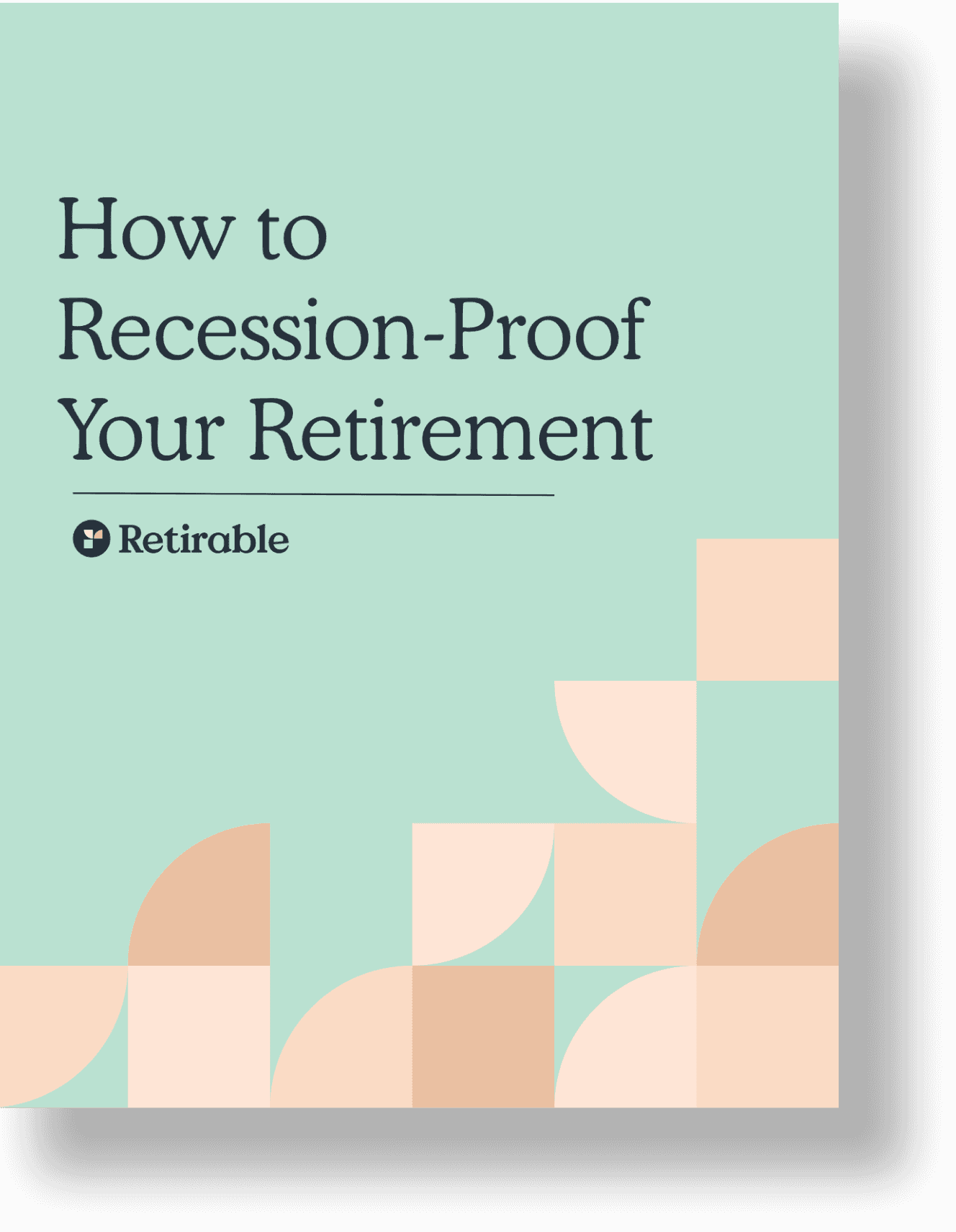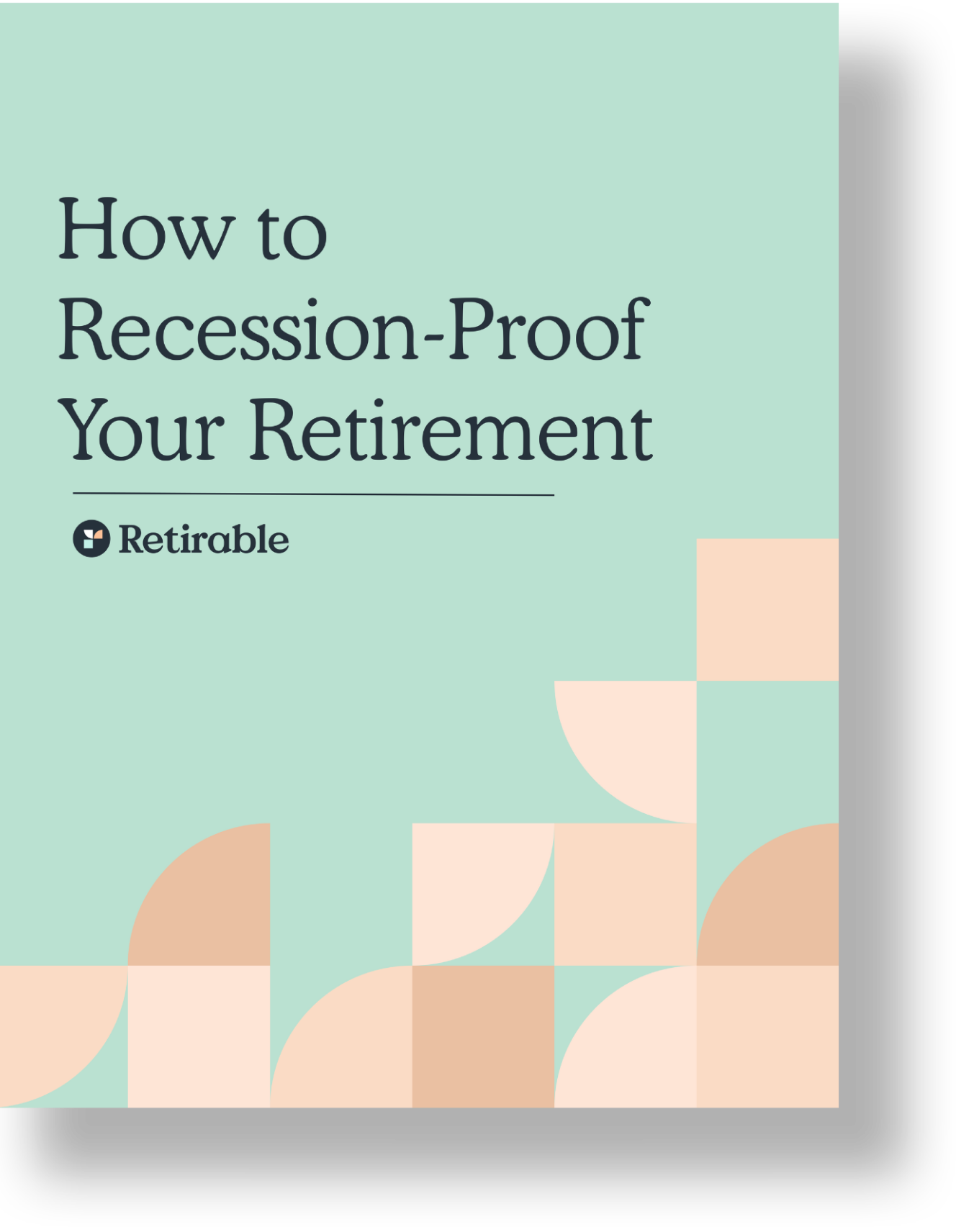Lifestyle
As a retiree, you might be considering part-time, consulting or freelance work to supplement your savings so you can stay social, learn new skills, and grow your savings. From flexible schedules to outdoor positions, we’ll explore a variety of rewarding options that will keep you energized and financially secure after retiring.

C.E Larusso
•
Published June 21st, 2024
Table of Contents
Key Takeaways
As a senior, a part-time job can boost your savings and help you stay social and mentally challenged
With the many digital tools that exist now, there are many remote positions for retirees such as content writer and online ESL teacher
Higher paying jobs, such as those in the medical field, often require extra accreditations and degrees, so be sure to research what’s necessary
As a retiree, you might be considering part-time or freelance work to supplement your savings so you can stay social, learn new skills, and grow your savings. From flexible schedules to outdoor positions, we’ll explore a variety of rewarding options that will keep you energized and financially secure after retiring.
Discover the perfect fit for your skills, interests, and lifestyle, and make the most of your senior years with these great job ideas.
Why Should You Get a Job as a Retiree?
There are several reasons to consider working after you retire—and most of the time, depending on your financial situation, you can choose a much lower-stress profession or field of work, and work only part-time. In addition, if you’ve reached Full Retirement Age (FRA), you will still be able to receive all of your Social Security benefits.
Extra Savings
Whether you’re looking to boost your savings or simply want some extra cash for travel and other activities, taking on a part-time job can help you live a little more comfortably during retirement and enjoy those more luxurious pleasures in life. Hopefully, continuing to work is a choice and not a necessity, but either way, a part-time job can go a long way to making you feel more financially stable after retiring.
Health Insurance
If you have retired before 65—the age at which you are eligible for Medicare—you might be shocked by the price of health care. Some part-time jobs will cover at least a portion of your health care costs, helping you to save money while continuing your medical coverage.
Social Benefits
Some people find retirement lonely; they are used to going into an office each day, greeting and talking with co-workers, attending work events, and so on. Taking a job after retirement can keep you connected to people and make you feel a part of a community.
Mental Stimulation
Taking a job that requires you to learn some new skills can be good for your brain and help to slow cognitive decline. Volunteering at a museum or other cultural center can be another way to learn new information and meet people.
Types of Jobs for Retirees
You can choose from a number of jobs as a retiree, some of which are part-time, some remote, and some with very decent—if not high—wages. Ultimately, it’s up to you to decide where your skills will best translate, and the kind of work set-up you’d like to have. A job in real estate, for instance, could come with a big paycheck but might require you to work weekends, while working as a substitute teacher will pay less but give you more free time.
Part-time Jobs for Retirees
It’s worth noting that some of these jobs (especially those in the medical field) might require special certifications or advanced degrees; if you don’t already have these, it might take anywhere from one to four years to get them. If you have the certifications already and wish to continue with your work on a part-time basis, the transition should be simple.
Substitute Teacher
Average hourly pay in the US: $19
Requires physical labor: Can require standing, but no heavy lifting.
Benefits provided: Paid time off, retirement savings (401(k)), flexible schedule; some cities have unions for substitute teachers, which often provides health care, including dental and vision coverage.
Retail Worker
Average hourly pay in the US: $14
Requires physical labor: Often requires standing for many hours, lifting and carrying boxes
Benefits provided: Part-time employees may not receive the same benefits of full-time ones, but you might receive paid time off, medical coverage, and a retirement savings plan.
Rideshare Driver
Average hourly pay in the US: $20
Requires physical labor: Requires sitting for long periods of time, which can be difficult for those with back or hip issues
Benefits provided: Most states see rideshare drivers as gig workers and do not offer them benefits; in California, the passing of Prop 22 means that rideshare drivers are considered employees, so companies offer subsidies for health care, an hourly rate over the minimum wage, and more.
Food Service Worker
Average hourly pay in the US: $15
Requires physical labor: Requires standing for long periods, lifting boxes, and repetitive motions
Benefits provided: Free or discounted food during shifts, sometimes medical coverage, paid time off
Remote Jobs for Retirees
The remote work revolution kicked into high gear during the COVID-19 pandemic, and it shows no sign of slowing down. Many people are enjoying the lifestyle that comes with remote jobs: working from anywhere in the world with wi-fi, being able to prepare lunches at home, and best of all—no commuting time.
Online English Teacher
Average hourly pay in the US: $16
Requires physical labor: Nope—you can do online teaching sitting or at a standing desk, whichever your preference, and anywhere you have fast internet. Some gigs, however, might require you to teach populations abroad which could mean waking up and working at odd hours.
Benefits provided: Most of these jobs do not offer many benefits—you’ll be lucky to get paid time off.
Virtual Assistant
Average hourly pay in the US: $27
Requires physical labor: Nope—you can be a virtual assistant sitting or at a standing desk, whichever your preference
Benefits provided: Most of these jobs do not offer many benefits—you’ll be lucky to get paid time off.
Content Writer
Average hourly pay in the US: $19
Requires physical labor: Typing involves repetitive motions, something to note if you have joint issues, such as arthritis
Benefits provided: As a content writer, you might be freelance (1099) or an employee (W-2). If you’re the former, don’t expect any benefits, but if you can land a part-time job as an employee, you might get a retirement savings account and some of your medical coverage paid for by your employer.
Higher-paying Jobs for Retirees
Many of the higher-paying jobs on this list require some kind of accreditation. To become a university professor, you likely need an advanced degree (Master’s, PhD), and to become a plumber, you’ll need to spend some time apprenticing. That said, it’s possible you worked in these fields prior to retiring and wish to return to them on a freelance basis.
College Instructor
Average hourly pay in the US: $35
Requires physical labor: Might require occasional standing
Benefits provided: Adjunct and part-time professors/instructors rarely receive benefits
Real Estate Broker
Average hourly pay in the US: $40
Requires physical labor: Brokers often have to host open house viewings, which can involve standing for long periods
Benefits provided: Most real estate brokers operate as 1099 employees and do not receive benefits
Plumber
Average hourly pay in the US: $24
Requires physical labor: A highly physical job, plumbers need to be able to sit and bend over for long periods and often work on detailed projects with their hands
Benefits provided: Many plumbers are able to join a union, which usually offers health care, retirement savings plans, paid time off, and more.
Accountant
Average hourly pay in the US: $27
Requires physical labor: Not a physical position
Benefits provided: If you work for an accounting firm as an employee, you might get offered health care, retirement savings, sick days/paid time off, and more.
Freelance Jobs for Retirees
Freelance jobs are ones in which you are classified as a 1099 worker—which means you aren’t eligible for any of the benefits the company offers its employees. That said, you can usually claim many expenses on your tax return to offset this, including the use of your home as an office and computer equipment.
Freelance Editor
Average hourly pay in the US: $35 Requires physical labor: Not a physical position Benefits provided: Often, none
Freelance Writer
Average hourly pay in the US: $29
Requires physical labor: Not a particularly physical position, but writing can require typing for long stretches which might be difficult for those with wrist issues or arthritis
Benefits provided: Often, none
Freelance Stylist
Average hourly pay in the US: $21
Requires physical labor: Often requires standing for long hours and repetitive motions
Benefits provided: Often, none
Outdoor Jobs for Retirees
Longing to live life outside after decades in a dusty office? There are many jobs you can get as a retiree that give you flexibility and fresh air.
Seasonal Park Jobs
Average hourly pay in the US: $11
Requires physical labor: Often requires standing for long stretches, sometimes requires walking through parks for several hours.
Benefits provided: Often, none
Security Guard
Average hourly pay in the US: $18
Requires physical labor: Requires standing for long periods, though some institutions, such as museums, and companies might offer seating.
Benefits provided: Entirely depends on the company or organization; some museum positions are union, which will come with a suite of benefits. Others treat security guards as freelance employees.
Teach at a Public School
Average hourly pay in the US: $22
Requires physical labor: Usually, nothing too demanding; occasional standing or walking
Benefits provided: Teachers are typically represented by a union, which means they are eligible for benefits like health care, pension plans, paid time off, and more.
Health Care Jobs for Retirees
Health care jobs often pay very well, but require specialized training or advanced degrees. There is a rise in remote health care jobs, such as remote nurse positions, which can offer seniors more flexibility.
Home Health Aide
Average hourly pay in the US: $25
Requires physical labor: Yes; health aides often do many of the physical caretaking chores (bathing, dressing) that an ill person cannot complete on their own.
Benefits provided: Many aides work for a larger health care company, which should offer standard benefits like medical coverage and paid time off.
Dental Hygienist
Average hourly pay in the US: $52
Requires physical labor: Requires standing for long periods (often full days)
Benefits provided: It is common for dental hygienists to receive benefits from the dental company or dentist they work for.
Medical Office Assistant
Average hourly pay in the US: $18
Requires physical labor: Not a physically demanding job
Benefits provided: It is common for medical assistants to receive benefits from the medical company or hospital they work for.
Handyman Jobs for Retirees
If you enjoy DIY projects in your own home, why not make some extra cash doing them for someone else?
Home Contractor
Average hourly pay in the US: $28
Requires physical labor: Yes; this is a very physically demanding job, requiring lifting heavy items and the operation of tools and special equipment
Benefits provided: Unless you work for a larger company, many home contractors are 1099 (freelance) workers without standard benefits
Home Improvement Tasks
Average hourly pay in the US: $26
Requires physical labor: The amount of labor can vary from day to day; home improvement can be as simple as putting together an IKEA desk to installing shelves. Overall, though, this is considered a physical job.
Benefits provided: Most home improvement specialists are 1099 (freelance) workers without standard benefits
Government Jobs for Retirees
Government jobs are bountiful—thanks to the many departments that exist—and many offer excellent benefits, including pension plans. In addition, they come in all shapes and sizes, from park ranger to post office clerk.
Court System (Mediator, Clerk)
Average hourly pay in the US: $20
Requires physical labor: Not a physically demanding job
Benefits provided: Many court clerks receive health insurance, vacation time, deferred compensation, mileage reimbursement, and more.
Postal Service
Average hourly pay in the US: $17
Requires physical labor: Depending on your role at the post office, you may need to walk or stand for long stretches and use your hands in repetitive motions during the day.
Benefits provided: Mail handlers are unionized, which means they receive many benefits including health insurance, vacation time, and pensions.
US Fish and Wildlife
Average hourly pay in the US: $19
Requires physical labor: Field work is very strenuous, requiring heavy lifting, lots of walking, and standing.
Benefits provided: Jobs offered by the government often include medical and dental care, pensions, vacation time, and more.
Can I Retire Without an Extra Job in Retirement?
Ultimately, retiring without taking on a part-time or freelance job will depend on three main factors: how much your Social Security benefit is, how much additional retirement savings you have, and your cost of living.
Those who have been squirreling away savings since their 20s can likely retire comfortably without assuming a new job, especially if they dial down their expenses or move somewhere with a lower cost-of-living and excellent tax benefits, such as Florida, Wyoming, or Nevada.
In addition, if you wait to collect your Social Security benefit, your benefit will be higher�—maxing out at the age of 70, when you must start receiving your benefit. Collecting your benefit as soon as they are available—age 62—means they will be permanently reduced by as much as 30%.
Finally, you should consider your current state of health. You’ll need to determine how much you spend on medical expenses, while also considering how healthy you are and how many years you expect to live—your retirement savings needs to last you the rest of your life.
Deciding when to retire should come after consulting with your financial advisor, reviewing your expenditures, and understanding how long your savings will last you. You should calculate a budget based on your common expenses, such as housing, transportation, medical care, food, and so on, while also leaving some wiggle room in case of emergencies or to enjoy hobbies and travel.
Average home price in the US: $440,000
Average rent in the US: $1,937
Expected monthly expenses: $2,000–$2,500
Frequently Asked Questions
Should I get a job as a retiree?
There are a lot of benefits to holding a job after retiring that go beyond the extra cash in your pocket each month. A job can help you stay connected to a community, make you feel busy and fulfilled, and help you learn new skills. That said, if you’re collecting Social Security benefits and haven’t reached full retirement age, the government might withhold some of your benefits, if you exceed $22,320 in additional wages. Weigh the pros and cons (and financials) of taking a part-time job during retirement with the help of a financial advisor.
What is the best job for a retiree?
There’s no one correct or right answer to this! Many people choose jobs during retirement that allow them to maintain a more relaxed lifestyle, have flexible hours, and aren’t too physically demanding. Some seniors choose to simply switch to consulting work in the field they already work in—after all, they already have all the connections and experience necessary.
Share this advice

A professional content writer, C.E. Larusso has written about all things home, finance, family, and wellness for a variety of publications, including Angi, HomeLight, Noodle, and Mimi. She is based in Los Angeles.
Share this advice

A professional content writer, C.E. Larusso has written about all things home, finance, family, and wellness for a variety of publications, including Angi, HomeLight, Noodle, and Mimi. She is based in Los Angeles.
Free Retirement Consultation
Still have questions about how to properly plan for retirement? Speak with a licensed fiduciary for free.






